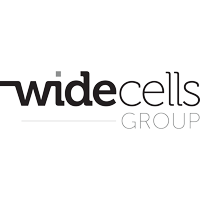Key learnings:
- WideCells Group has achieved some significant milestones this year, including key licensing and commercial partnership agreements, and the launch of its insurance product and e-commerce platform.
- João Andrade, Chief Executive Officer, discusses the synergies between the company’s three business divisions and its ambitious growth plans.
- He also provides insight into the driving forces behind the company’s trajectory thus far, from the experience of his team to the support of external advisers during the firm’s £2 million IPO.
In the last month alone, stem cell technologies and services organisation WideCells Group PLC (LON:WDC) has announced agreements that will see it expand its footprint in Europe, the Middle East, North Africa, and Asia-Pacific. The agreements form part of a range of developments at the group, including an education platform spearheaded by Apple’s former Director of Education, Alan Greenberg, the launch of an e-commerce platform in the UK, and expansion into the dental industry through product and research activity, to name but a few. Biotech and Money spoke to João Andrade (pictured left), Chief Executive Officer at WideCells Group, to learn more.
Building on its core businesses
WideCells Group comprises three core components. The first, WideCells, includes a cryogenic division specialising in stem cell storage and a stem cell and regenerative medicine research arm based at the University of Manchester Innovation Centre. In July 2017, the WideCells Institute of Stem Cell Technology was granted a research licence from the UK’s Human Tissue Authority to conduct research.
The second strand to the business, Wideacademy, is being developed to deliver education and training around stem cell technologies to the general public, medical community, and enterprise. The third element, CellPlan, provides an insurance plan that covers the costs associated with stem cell treatments, as well as access to an expert medical opinion service.
CellPlan launched in the UK at the end of July 2017, and the company has since rolled out an e-commerce platform that allows families that have stored stem cells in UK facilities that meet WideCells Group’s quality criteria to directly purchase the insurance product as of October 2017.
Andrade explains: “The reason we look for high quality standard facilities is, if we receive a claim, we need to make sure the stem cells can be used for transplant, and for that we are basing our quality criteria on international licensing and accreditation.”


